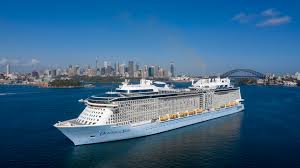Understanding the Royal Caribbean Norovirus Outbreak

Introduction
The recent outbreaks of norovirus aboard Royal Caribbean cruise ships have raised significant public health concerns among passengers and health officials alike. Norovirus, known for causing gastroenteritis, is highly contagious and can spread swiftly in environments like cruise ships where people are in close quarters. Understanding the dynamics of these outbreaks is crucial for future preventative measures and the safety of cruise travel.
Recent Outbreaks
In October 2023, multiple cases of norovirus were reported on Royal Caribbean’s Odyssey of the Seas, which initiated heightened scrutiny from health authorities. Passengers began reporting symptoms such as vomiting, diarrhea, and stomach cramps shortly after the cruise set sail from Fort Lauderdale, Florida. The Centers for Disease Control and Prevention (CDC) was notified, and the cruise line took immediate action by enhancing sanitation measures and providing medical assistance to affected guests.
Historically, norovirus has been a recurring issue on several cruise lines; however, Royal Caribbean operates comprehensive health protocols with routine cleaning and sanitary practices. Despite their efforts, the interconnected nature of cruise travel can facilitate rapid transmission of the virus among passengers and crew, complicating the management of outbreaks.
Health Authorities’ Response
The CDC and other health authorities have reinforced the importance of reporting symptoms along with following strict hygiene protocols during voyages. According to the CDC’s guidelines, passengers are advised to wash hands frequently, avoid contact with sick individuals, and report symptoms immediately if they arise. The outbreak prompted Royal Caribbean to issue notifications to travelers, providing information about the virus and the measures being taken to ensure passenger safety.
Significance for Future Travel
For frequent cruise travellers and enthusiasts, these norovirus incidents underscore the importance of remaining informed about health risks at sea. While Royal Caribbean, along with other cruise lines, has implemented exhaustive health measures, sporadic outbreaks highlight that vigilance is essential. Passengers are encouraged to keep abreast of health advisories, prepare for any travel disruptions, and consider personal hygiene practices during their travels.
Conclusion
The recent norovirus outbreak on Royal Caribbean serves as a critical reminder of the potential health risks associated with cruising. As travel resumes worldwide, it is vital for cruise lines and passengers to collaborate in promoting healthier environments aboard ships. Looking ahead, industry stakeholders must remain proactive in addressing health concerns to sustain confidence in cruise travel while ensuring that such outbreaks become less frequent and more manageable.
